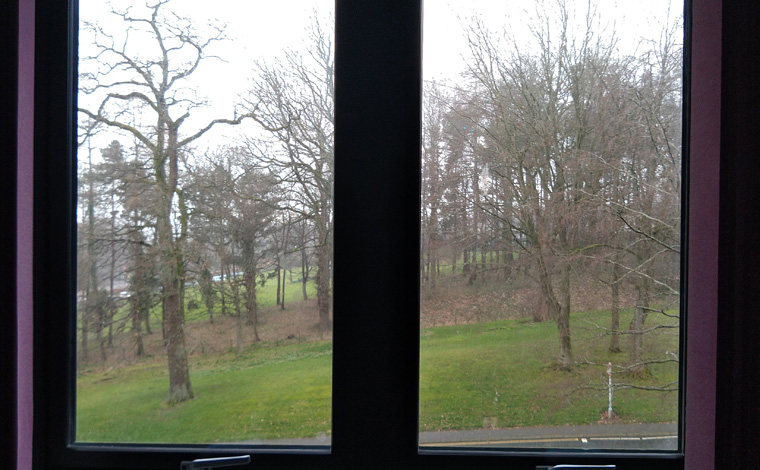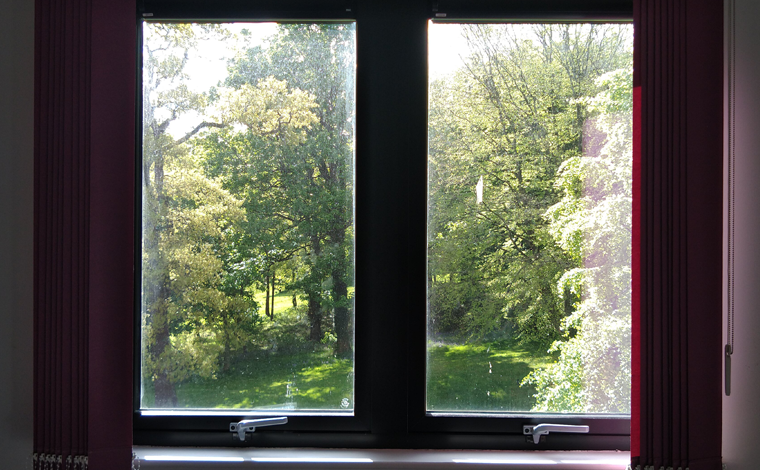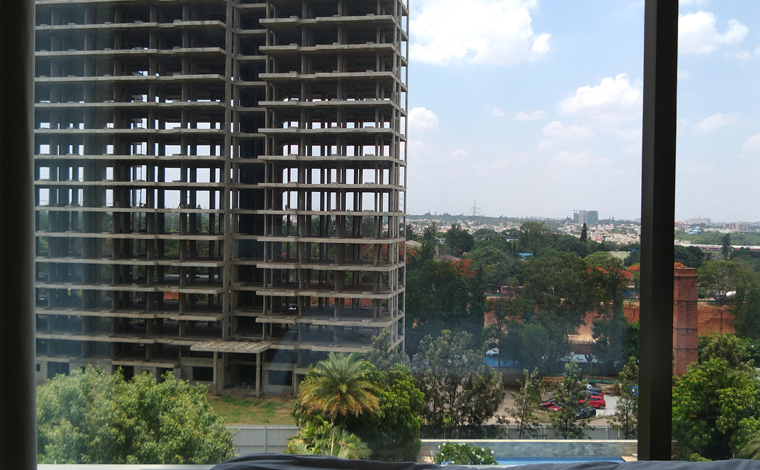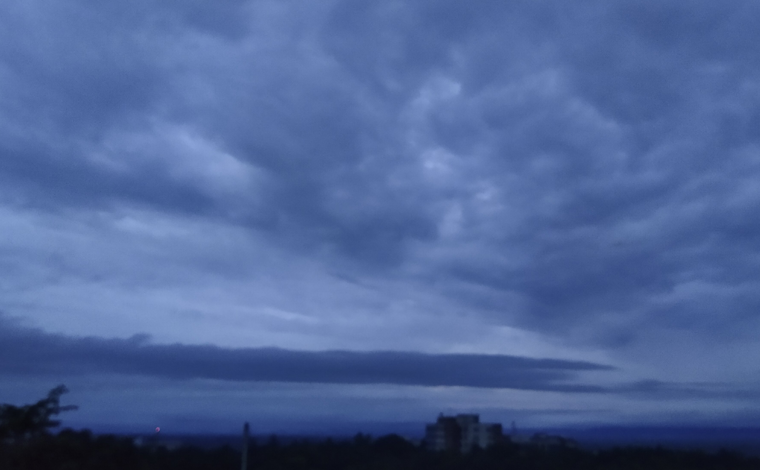Time at Stirling
The Writer and Her Windows
I have come to believe that in their preference of writing spaces and practices, writers fall (broadly) into two categories – those that face a wall and those that face a window. Some thrive on the stimulus of a view and others were more likely to endorse Somerset Maugham’s view that writers are best advised to sit with their back to the window.
When I recalled all the writing spaces where my books had grown, I had to accept that I was unequivocally a ‘wall writer’. I loved having a window close at hand, somewhere at an angle (for light, for breeze, for punctuating my solitude) but not to brace my writing desk. I sought something solid, preferably opaque, ahead of me.
There was, however, one perch by a window – this is when I was working on my third book, a historical novel about Tipu Sultan’s last war (The Untitled, HarperCollins, 2016), and studying at Swansea University in the UK. But that too wasn’t a true exception. When I looked up from my keyboard, all I could see from my window was a backyard wall, a tall stack of stone, no other view. I still faced a wall, albeit through a window! Clearly, walls more than windows comforted and contained my manuscript-immersed self. Thus far I have worked through seven book-length manuscripts that were composed in over a dozen dwellings, entirely driven by this preference.
Some writers tell me that they can write anywhere at all, a random coffee shop for instance. I am almost envious but have the same question to resolve. Yes, I persist with them, but if you were to choose, if you had to work at home, would you prefer to face a window or a wall?
Why should it matter? Maybe it doesn’t. Call it anthropological curiosity. Diana Athill expressed surprise that writers would choose “to have their desks by a window looking onto an agreeable view. For me that would be fatal. I can shut out some distractions when working, but not the temptation to watch what's going on out of doors.” Unlike Athill, I never worried about windows opening to distractions. Rather, a window with its assured view seemed to contradict the nebulous imagined world I was seeking to put to words. The outdoors was going nowhere, but this blank page on my computer screen would remain indigent, unrelenting.
I was fairly certain that a lifetime of ‘wall writing’ was ahead of me when the Covid-19 pandemic arrived. And that is when I started to think about windows differently.
It was the last week of February 2020 when I landed at the University of Stirling, Scotland, on a writing residency made possible by the Charles Wallace India Trust. It was to be a much-awaited sabbatical and I looked forward to three uninterrupted months of writing. We were aware of the virus that had caused the lockdown in Wuhan but there was little to indicate the strength of its contagion or how quickly it would make its way to Europe. It did not even occur to me to cancel my trip. I was happy to be there.
Within days of my reaching Scotland, university offices closed down, classes moved online and students started to leave the campus. I found myself in the isolated space of a hostel room that
was about two arm-spans in width and length. Apart from a compact kitchen area and gadgets, the room had a square writing table that firmly rested (but of course!) against a wall. As a writer and scholar, I felt adequately equipped to deal with solitude, and coaxed myself to write for at least an hour each day. But this was not the usual solitude of choice that had comforted me for years – this was a peculiar seclusion, an exile within exile, no old friends or family in the vicinity, and the borders of my own country sealed against my return. With flights cancelled, the uncertainty of return rankled more than the isolation.
There were enough library books on my table to keep up with a sketchy reading routine, but writing was becoming more and more difficult. Walls that had unfailingly buttressed my writing self were now closing in. I practiced yoga, I paced, I called home. And I found myself talking a lot about the lone window of my room.

My hostel window in late February 2020
I had reached Scotland when the trees were bare, just emerging from winter, and I had the privilege of celebrating each new leaf of spring. I waited eagerly for dogs that lived in the houses outside the campus to walk past my window – an English Pointer, a French Scent Hound, a Cocker Spaniel, a Border Collie. I named and admired from my second floor window, so removed that the walkers never turned to meet my gaze. Squirrels and rabbits came along to be counted, as also the birds, mallards that waddled up from the nearly loch, or ponderous magpies. Those early days were blustery and cold, the skies mostly grey, and even when the sun came out, there was no place really to go, not with the pandemic raging, and I stayed at my window.
The month of March came and went. The coronavirus was moving quickly through the UK and a stay-at-home order was in place – this allowed for one outing each day for exercise, and I waited eagerly for my evening walk. It meant an exploration of wooded trails around the campus, often towards the comfort of a church graveyard, soaking in the mauve and green hills, walking in empathy with a defiant cloud-quilted wind. First emerged gentle white snowdrops, then bright daffodils, then bluebells spreading a carpet in the woods, my heart brimming with gratitude for the blossoms of spring. I walked through narrow pebbled paths, between old weeds and new flowers, for about an hour, then back to the hostel room, the same window blackened with night.
April arrived – I now get why this is the cruelest month (if one agreed with T.S. Eliot’s The Waste Land), I joked with my husband on the phone as we bemoaned yet another cancelled flight ticket, yet another extension to the lockdown in India. I was trying all I could to return home. I could not write at all now, barely an email or two. Most of my emails were to the consulate in London and Edinburgh or to the Ministry of External Affairs – I am here, I am here, please bring me home. I turned to the window, as I did to my books, and studied the arrival of summer, longer days of unbleached sunlight, the wanton greening of trees.
A few flights were to be allowed by the Indian government, such was the news, and that early week of May remains among the most unnerving days I have known, the ambiguities, the unsteadiness of return. I stared at the sky and thought of myself as a homing pigeon – if I could walk, if I could swim, I would, I would head home. I was resolved to take my chances with any option of travel. A day before I left the hostel room, I took a photograph of the same window now flush with foliage.

My hostel window in early May 2020
I had been so eager to go home, and yet I felt a tug when I stood before this view for the last time. Thank you for the comfort, my heart said to the window, I will miss you.
I took a taxi to Edinburgh, the city I had loved through literature and had always wanted to explore, but all I would see of it was the airport. Only one flight each day from Scotland to London meant I had to fly a day in advance of my Air India flight from Heathrow. Soon I was in Terminal 2 of Heathrow, and with no seating in the departure area, I made my way to the floor where travellers arrived. I settled into a chair dutifully sanitized. For the rest of that day and all of that night, I sat in the same chair, looking at airport activity through a giant wall of glass. The loss of my hostel window was palpable.
It was midnight of the following day when the flight landed in New Delhi – I woke to the sound of clapping in the aircraft. The captain had just made an announcement that we had returned to our country. We waited while the crew of the aircraft changed. Then onward to Bangalore. The government regulations at the time stipulated a two-week institutional quarantine and two swab tests (at the start and end of stay). I did not hesitate to choose the best of the hotel options offered to us. I now had a new window, one that looked out at the city of Bangalore where I had family that loved me. Ahead of me were fourteen days in a room with sealed panes, food left at the door by hotel staff in full protective gear, and a daily medical checkup. My view was of a high-rise building that was half-constructed, abandoned.

My hotel room during quarantine in late May 2020
I was home and yet not home. I stayed in bed for hours, craving fresh air and human touch, studying every floor of this half-constructed building – in the absence of walls, all it had were windows, and a forlorn stack of cement steps, my eye moving up and up. When I found the strength to read the news, I was wracked with guilt and sorrow for fellow-citizens who had turned invisible to the state, left to fend for themselves. When asked to write about how I was coping, I declined. To speak of coping was to speak of the guilt of my privilege – to be able to afford a luxurious hotel room, to know kindly people facilitating my travel, to be free from the worry of imminently losing livelihood, to have a family still in good health. It felt like a travesty to give words to the distress pooled within, me who had a slew of advantages. And above all, windows. I had windows.
At the end of May, I was finally home, to a town whose western horizon is the Arabian Sea and the eastern horizon is the Western Ghats. The district authorities asked me to self-isolate at home for two more weeks, and I gladly planted myself on a familiar balcony, suspended six floors above the ground, to watch the first arrival of the monsoon.

View of the 2020 monsoon from a balcony at home
The return to my writing table was neither intuitive nor easy. I was as restless as a tailorbird selecting the right leaves, the one that would inspire mating and new life. My husband watched in silence, lent a patient helping hand while I shuffled tables around our apartment. Again and again, wall after wall. Nothing felt right. Till one day I looked out of the window of one of the rooms, at the expanse of rain-washed treetops, a pale wave of hills in the distance, and I knew I had changed.
My writing table moved up against the window. I began to write.

